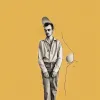The Art of Listening: How To Play Any Instrument
Music is often perceived as an exclusive domain, gated by the demanding rigours of time, practice, theory, and a supposed innate talent. In reality, however, music's true essence is found not in the exactness of playing “correctly,” but in the freedom to explore, listen, and be honest with oneself. You don't need to be a Mozart or a Beethoven to connect with an instrument and produce something profound and moving. Every individual, regardless of their skill level or knowledge of music theory, has the potential to engage with the language of sound.
The Power of Listening
One of the most empowering aspects of music is that there is no “right” or “wrong” way to play an instrument. Music is an art form, and like all art forms, its beauty lies in its subjective interpretation.
When approaching an instrument, the initial goal shouldn't be to play it “correctly”, but to listen. This involves paying attention to the sounds you create, exploring the different tones, and seeing how they make you feel. Even the discordant, unexpected sounds have value, a unique charm that contributes to your personal musical journey.
Just as a painter appreciates the distinct hues on a palette, so too should a musician revel in the rich tapestry of sounds an instrument can produce. The keys of a piano, the strings of a guitar, or the pads of a saxophone aren't just for creating specific notes—they're your gateway to an infinite spectrum of sonic expressions.
Embracing Authenticity
In addition to listening, honesty plays a crucial role in musical exploration. Honesty, in this context, means being true to your feelings and experiences. It involves discarding preconceived notions of success and failure and embracing the uniqueness of your musical journey. You are not attempting to match the virtuosity of a concert pianist; rather, you are communicating your truths through the instrument.
Even the simplest melody played with genuine emotion can move listeners more deeply than a technically flawless performance devoid of soul. Remember, the goal is not perfection, but authenticity.
Discovering New Boundaries
The idea that you have to play an instrument “correctly” is a limiting belief that can stifle creativity. Instead, view every interaction with your instrument as a process of discovery. Each key you press, each string you pluck, and every breath you exhale into a mouthpiece, is an experiment, a question: “What sound will this make? How does it make me feel? How might it resonate with others?”
These explorations may lead to unconventional ways of playing, pushing the boundaries of what's considered traditional or 'correct.' Yet, it is through these unconventional methods that new musical languages are born. The vast ocean of music is wide open to you, waiting for you to chart your course and discover new sonic lands.
The Universal Language
Music is a deeply human art form, one that transcends cultural barriers and speaks to the core of our emotions. It’s not the perfection of the notes or the technical prowess that creates a connection with the audience; it's the emotion, the raw energy, and the spirit of exploration.
When you play an instrument, you're not merely producing sounds; you're telling a story, sharing a piece of yourself, and contributing to the rich tapestry of human expression. This capacity to communicate and connect is within everyone's reach, regardless of their familiarity with music theory or their technical skill.
In conclusion, remember this: you are already a musician. Your instrument is but a tool to channel the music that resides within you. So, go forth, explore, listen, and be honest with your musical journey. After all, music isn't about playing “correctly” - it's about expressing yourself authentically through the universal language of sound. It's about listening to the melody of your soul and sharing it with the world. You can play any instrument, as long as you approach it with curiosity, openness, and honesty.
What matters is not whether you hit all the “right” notes, but whether you make a meaningful connection—both with yourself and your audience. The beauty of music is not just in its sound, but also in its ability to move hearts and minds.
So, pick up an instrument, any instrument, and start exploring. Let your hands wander, let your mind wander. Don't worry about playing the “right” way. Instead, focus on playing your way. Let the sounds you create, no matter how unconventional or discordant, tell your story. Your music may not always conform to traditional standards of correctness, but it will always be uniquely yours. And that, in itself, is a powerful form of artistic expression.
You are not just a passive consumer of music. You are an active participant in its creation. Your individual experiences, feelings, and insights make a valuable contribution to the global symphony of human emotion. So play, explore, listen, and be honest. The world is waiting to hear your music.

